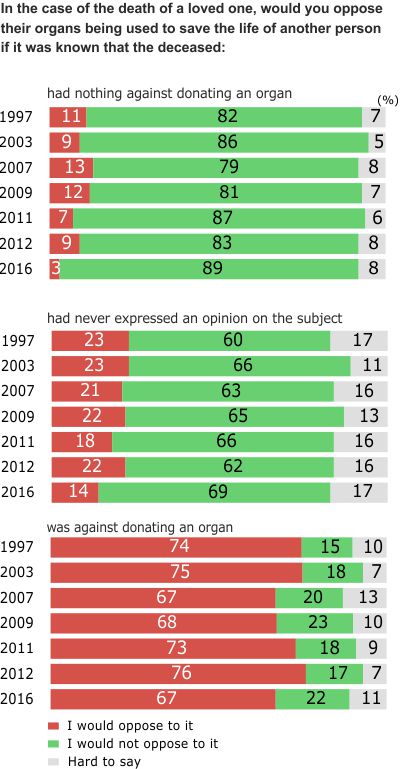34/2016
2016-08-29
Organ Donation after Death and Family Opposition
Polish law concerning organ donation after death is based on the principle of presumed consent. This means that all deceased people are potential donors unless they have previously put their names on a special register withdrawing consent for organ donation. In practice, however, doctors take the feelings of the deceased’s family into consideration. This means that if the family say they do not want organs to be donated, doctors will usually not go ahead with donation, even though there is no legal basis for this.
Respondents were asked about their attitude to potential organ donation from a deceased loved one in three different situations: when they knew that the deceased had had nothing against donating an organ, when they knew the deceased had been opposed to donation and when the deceased’s opinion was unknown, which is most often the case in reality. If it was known that the deceased loved one had had nothing against donating an organ for transplantation, the overwhelming majority of respondents (89%) would not oppose it. If the deceased was known to have been against donating an organ, two-thirds (67%) would respect this, whereas one-fifth (22%) would not. If the deceased’s attitude was not known then practically seven out of ten respondents (69%) would not oppose donation, whereas 14% would oppose it. In all three situations a marked drop in opposition can be observed, compared to four years ago. In addition, the percentages of those opposing organ donation when the loved one had had nothing against it or their opinion was not known, are the lowest noted in the last twenty years.

|
More on this subject in the CBOS report.
The above data comes from the ‘Current Events and Problems’ survey of 30th June – 7th July 2016.





